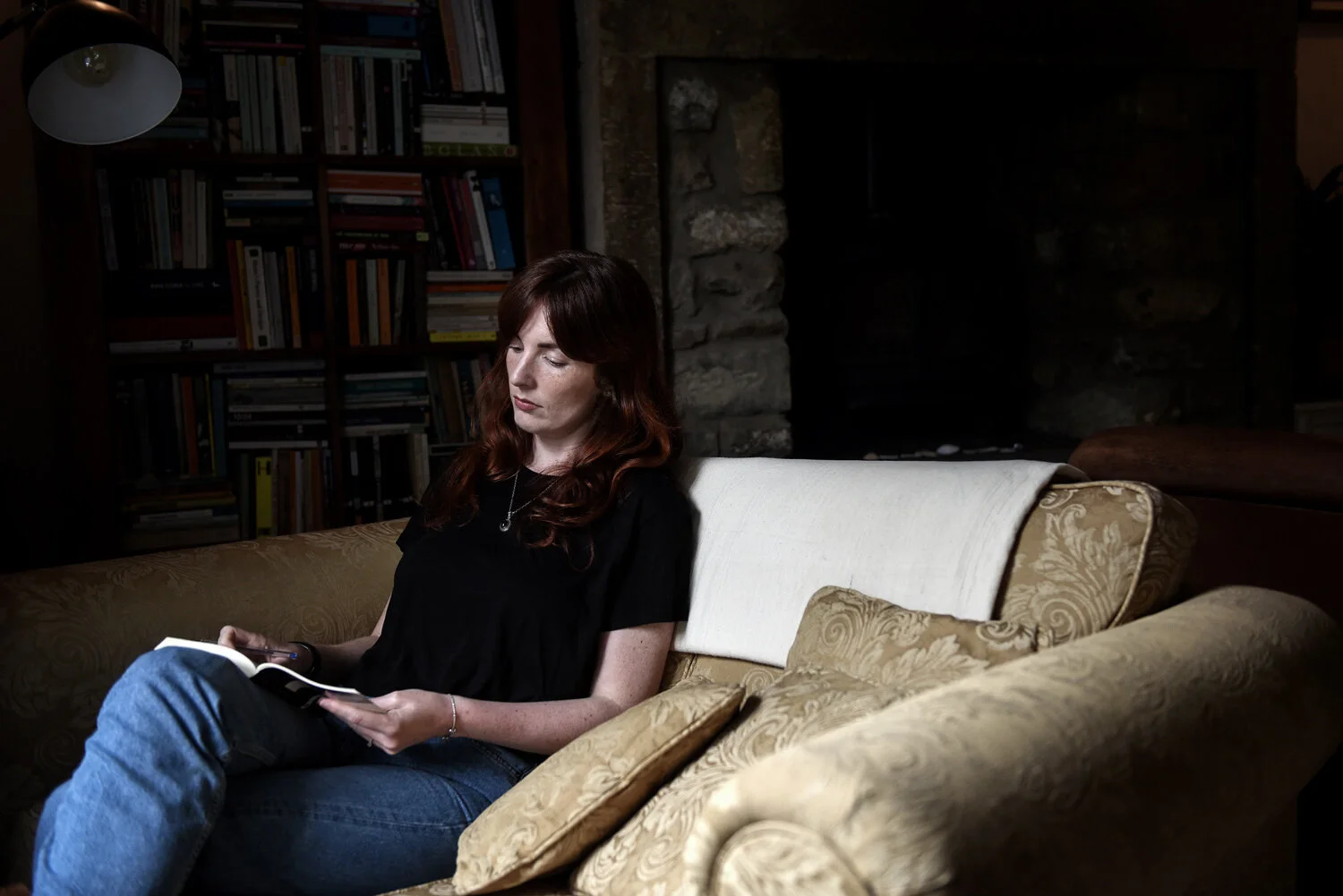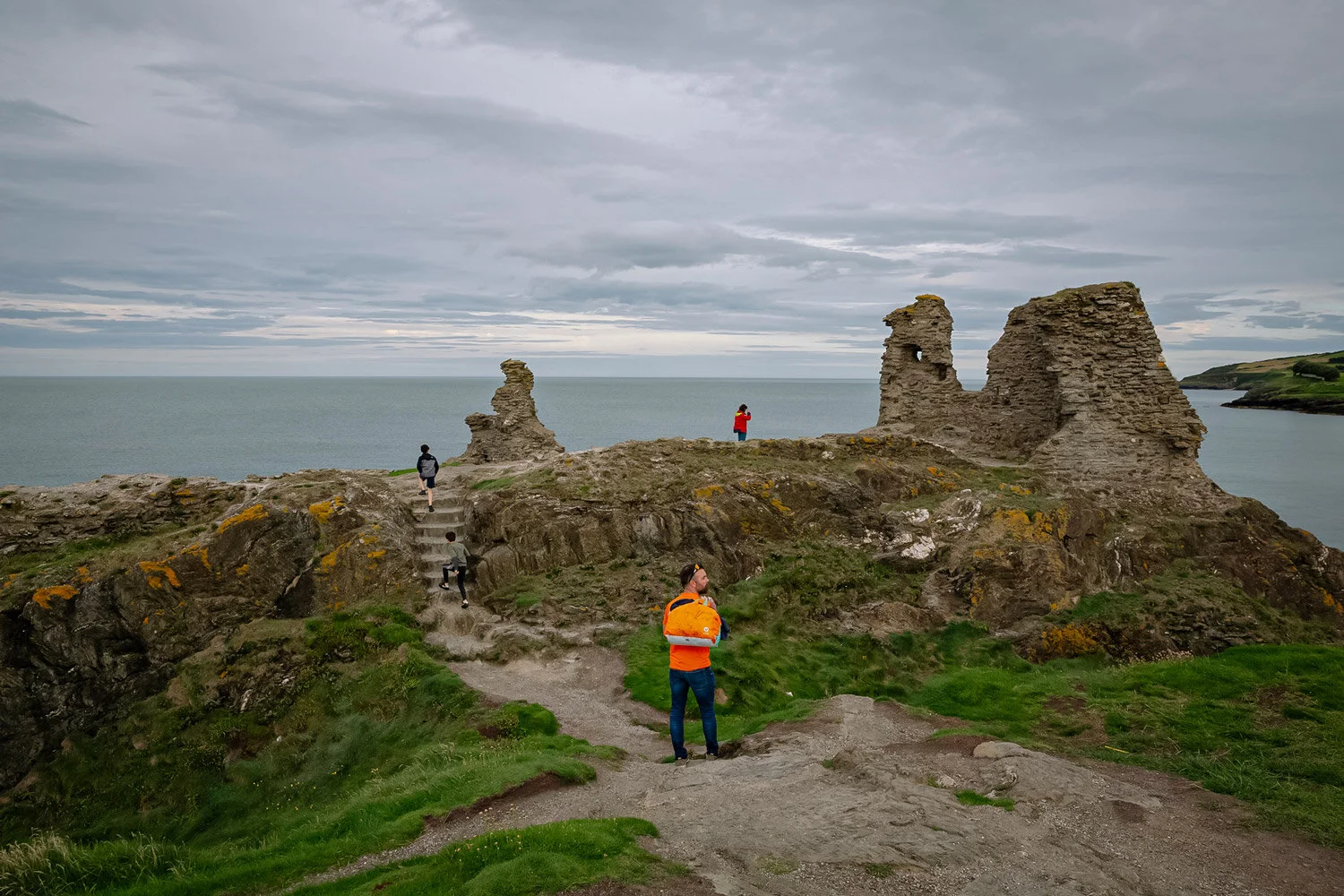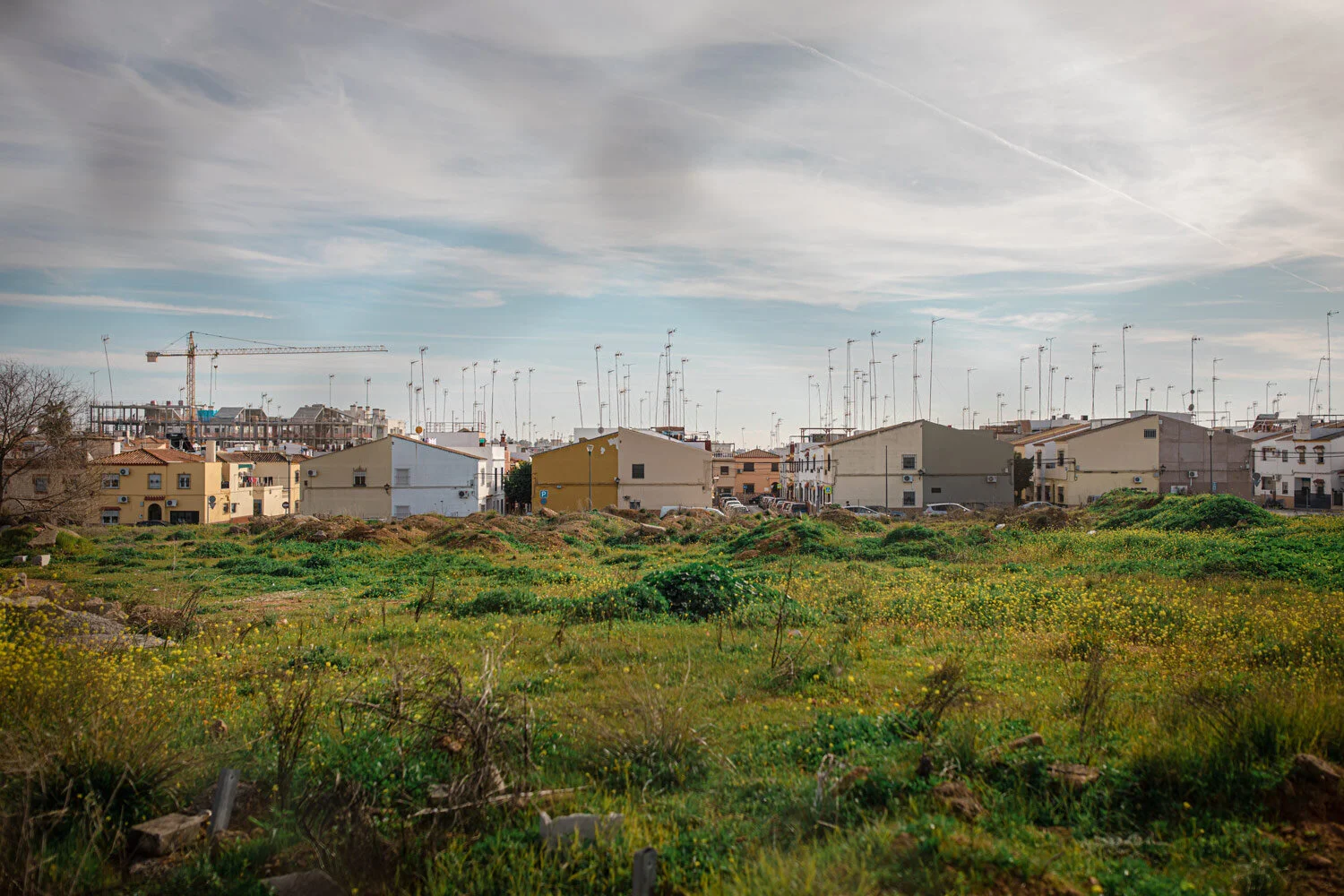This is Just How it Happened
Millennial Irish writers are a hot literary trend. But Lucy Sweeney Byrne – who doesn’t read reviews – is different, transcending the line between fact and fiction as she records the highs and lows of young women travelling a pre-corona world, in search of self.
Lucy Sweeney Byrne and I speak while I’m in Houston, Texas, the setting of a short story in her debut collection Paris Syndrome. It is mid-July 2020, and sticky out. Cicadas screech in the trees. A thick layer of grey hangs low in the sky. The city, normally congested during the day and buzzing at night, is a little emptier now, a little quieter. The coronavirus pandemic has taken Houston as its latest victim.
While I am in Houston, Lucy is many thousands of miles and an ocean away. She calls me from rural Northumberland, where she lives in a trim stone house with a garden. That morning, she slept in late – “half nine, very naughty of me” – and had a breakfast of overnight oats while sitting in bed. (She was exhausted, she tells me, from the previous week of intense writing in Edinburgh, Scotland.) After writing for a few hours, she and her partner David went out for lunch, and when they returned, Lucy walked around her garden with a cup of tea for some fresh air.
Lucy moved to the English countryside in April. Before, she was living in London with David, and before that, she had spent most of her twenties drifting from place to place for a few months at a time – New York, Paris, Mexico City – and writing up stories about her experiences abroad. After those trips, she’d usually go back to her father’s house in Wicklow, Ireland to work and save up for her next trip. The resulting writing has a restless feel. The main characters in Paris Syndrome, all millennial-aged Irish women, seek to maximise their experiences; to wring every last drop of meaning from a moment in order to document it later. Their attention spans are short; their infatuation with places brief. After a while, the characters move on – back to Ireland or to some new country. There is always somewhere better to be.

Photograph: Mary Turner for Point.51
Because I’m in Houston, where Lucy visited years ago, we speak about her story “All My Exes Live in Texas”. The story follows the narrator, a young Irish woman named Lucy, as she visits an ex-boyfriend in a suburban neighbourhood just south of Houston (“Or did I just say ‘south Houston’?” the narrator, visiting a post-Trump election Texas for the first time, asks.) Two years prior to the start of the story, narrator Lucy met her ex-boyfriend Charles in New York City, where they had fallen “madly in love”, but shortly after they moved in together, things began deteriorating. Lucy was running out of money and her visa was set to expire, so she went home to Ireland. Charles, a Houston native, went back to Texas.
The story, one of eleven in the collection, thrums with a witty and observant energy characteristic of Lucy’s writing. “All My Exes Live in Texas” is part travelogue documenting the peculiarities of the American South and part comic romance. Lucy (narrator) invents a reason to take a fourteen-hour trip from Dublin to “Trump coun-try” – research for writing! – when in reality she’s travelled all that way just to see her “so stylish, so effortless, so sexy” ex Charles and, perhaps, rekindle their abandoned romance. After hitching a $100 ride from the airport with a misogynistic Azerbaijani luxury car driver and reuniting with Charles, Lucy spends the ensuing days drinking “unironically” at a trashy seaside bar; chatting with a conspiracy theorist at an ice cream shop; and nearly running out of gas in rural Texas.
At the start of the story, the luxury car driver, Karl, makes a beeline for the slightly-frazzled, recently-arrived Lucy at Houston’s George Bush Intercontinental Airport. This prompts the narrator to examine the trope of the “white knight” swooping in to save the attractive maiden in need of help. Karl makes it clear, Lucy writes, that the $100 lift was “pretty much the most incredible favour anyone had done for anyone” and that it “was only even happening because he thought it might increase his chances of fucking” her. But Lucy, who pointedly keeps her naked thigh visible after the driver realises she is neither extraordinarily wealthy nor travelling close to the city centre, turns the trope on its head: it is she who uses Karl for the ride, and immediately abandons him once she arrives at her destination and meets Charles, whom she had simply referred to as her “friend” – gender unspecified. “Now his tight frown told me I was clearly a lying whore, a traitor just like all the others,” Lucy writes. “But oh well, too late – I was already gone.”
As the story – and the collection as a whole – progresses, the reader can sense a growing unease. The Charles Lucy knew in New York is not the Charles she sees now in Texas. Texas Charles is no longer sexy; rather, he looks like “an office worker from the Midwest, someone who would go on to suffer a mid-life crisis in a Jonathan Franzen novel”. When a leery man at a bar hits on Lucy, Texas Charles “slacken[s] and sink[s] back”. It dawns on Lucy that Texas Charles is, in fact, New York Charles; that Charles has always been spineless and pandering and utterly silent. The curtain is pulled back; the truth reveals itself as it has always been. The story ends, as many in the collection do, on a note of resignation. Lucy wants to go home.

Lying in ruins for almost 400 years, Black Castle looks out over the Irish Sea on the edge of Wicklow Town. Photo: Hugh Quigley for Point.51
NOW AGED THIRTY, Lucy Sweeney Byrne grew up in County Wicklow in eastern Ireland. Her parents divorced when she was young, so she spent time in many different houses: her father’s, her mother’s, her grandparents’, her aunts’. Each house was a world of its own. Her grandmother, a “very traditional old Irish woman”, lived a rural lifestyle on a lane called Blackberry and baked apple pies for her granddaughter. Her mother and her mother’s partner lived in a larger town, Bray, and they would visit Dublin to stroll through shops and museums. “I feel like I always had a mixture of different identities because I could often be in my one world where I was stacking bales of hay and feeding lambs from a bottle, and I could be at my mum’s and go to art galleries and to the city,” Lucy tells me. “I always grew up with the feeling I had various personalities and various versions of myself that didn’t align into one that well.”
In pursuit of writing that held such tensions of the self, Lucy studied English at Trinity College, Dublin – Ireland’s oldest and most prestigious university – and went on to work an assortment of odd jobs. She worked at the James Joyce Centre in Dublin, helped out at a cousin’s savoury pie shop in the city, and travelled to Spain to be an au pair. Lucy felt she needed to get out of Ireland to do her best writing, so once she had made enough money, she’d go travelling, staying on friend’s couches and in hostels and Airbnbs. For just over three weeks in Brooklyn, she even worked on a tourist ship in exchange for free room and board – an experience that later became the subject of her short story “That Sinking Feeling”.
We hope you’re enjoying this article. You’ve read 1,200of 3,896 words.
This story is from Point.51 03: Resilience.
You can order the magazine from our shop and have it delivered straight to your door.
Rafael Bastido de los Santos has a master’s degree and speaks excellent English, but he couldn’t find one stable job – so he worked three part-time. Like many young Spaniards, he faces a choice between life at home and more attractive career opportunities abroad.
Emma Ringqvist sailed the Atlantic Ocean alone for nine months, including sixty-seven days where she was completely out of reach of both land and people. It was the purest experience of loneliness.
Brexit and tackling the climate crisis will define Britain’s future, shaping the lives of a generation. Can the two find a way to coexist?
In 1950, four young Scots stole a symbolic stone from Westminster Abbey and brought it back home in the name of Scottish nationalism, sparking a nation-wide manhunt.











